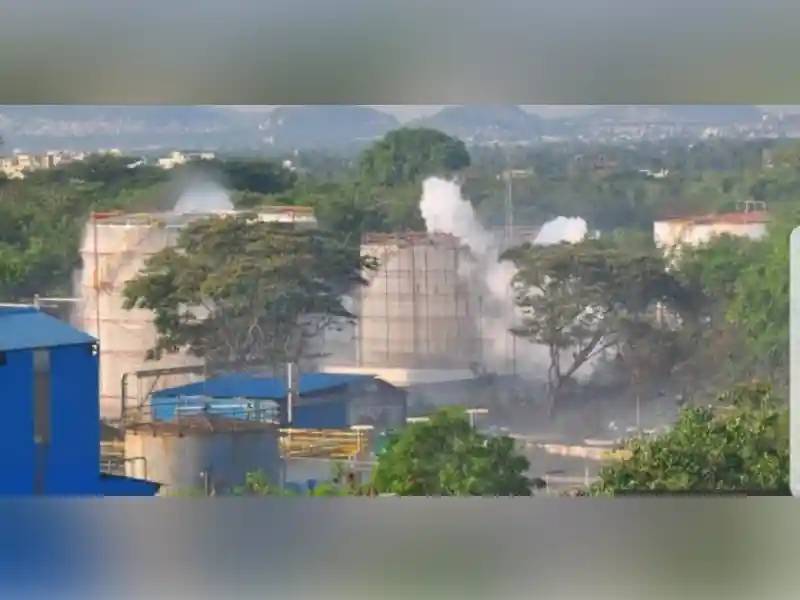Vizag gas leak: NGT team blames lack of safety norms at LG Polymers
By Newsmeter Network
Visakhapatnam, June 2: A five-member committee appointed by National Green Tribunal (NGT) to probe Vizag gas leak has blamed gross human failure and lack of basic safety norms at LG Polymers Private Limited for the incident that left 12 people dead on May 7.
The committee said the tanks from which the gas leaked at the LG Polymers plant in Vishakhapatnam were outdated and lacked temperature sensors.
Workers at the factory were slow to respond to the leak and the chemical company lacked experience in monitoring and maintaining tanks full of chemicals that remained idle for weeks due to coronavirus lockdown, said the report.
The chemical compound TBC (4-tert-Butylcatechol), the inhibitor of the polymerization reaction, was not effective after liquid styrene temperature rose above 52 degrees Celsius.
The exothermic reaction caused the styrene’s auto polymerization and led to rapid reaction and heating. As the temperature rose, styrene started vaporizing. Following an increase in pressure, five safety valves on the M6 tank rooftop opened and started emitting vapor.
The report said the emission started at 2.42 am. No alarm was generated when vapor leakage occurred and the auto sensor of styrene failed to detect it.
LG Polymers Private Limited applied for environment clearance in 2018 to the State Environmental Impact Assessment Authority (SEIAA) as it falls under Environmental Impact Assessment Notification, 2006.
It was found that the unit comes under Category A project and should be considered at the Central level. However, the Ministry of Environment is yet to receive a transfer proposal from the AP government’s SEIAA.
The committee also suggested the establishment of a district crisis group led by the District Collector to prevent the recurrence of such incidents in the future.
The group should meet once in every 45 days to review the safety and hazards of every industry. Lack of proper safety response preparedness at the plant had impacted the early stages of operations. Besides, the public siren system could not be activated. Otherwise, many lives could have been saved, it said.